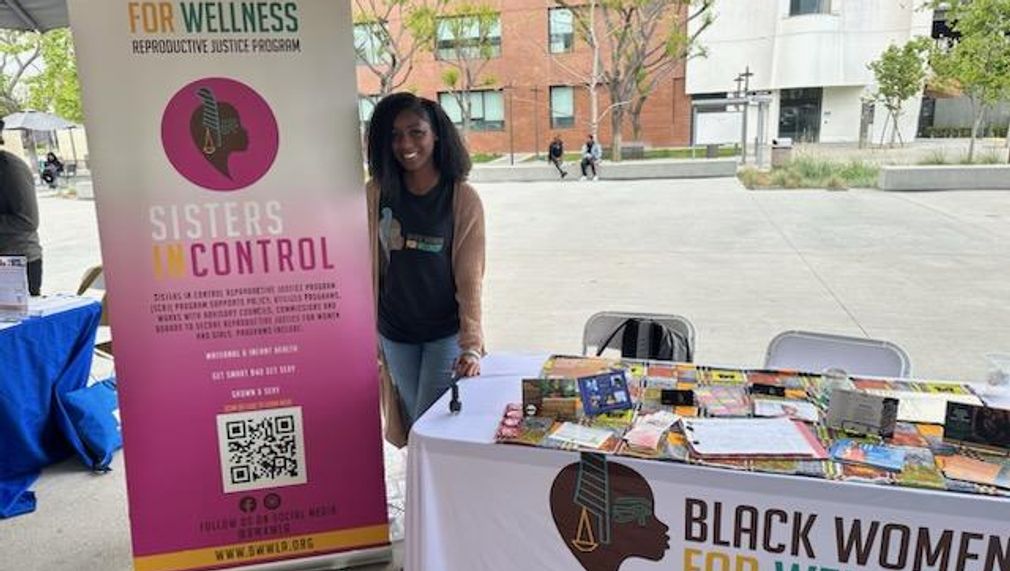Resource Sharing to Support Foster Youth
BWW will raise awareness about the California Earned Income Tax Credit (CalEITC), which offers support for low-income, working Californians, amongst foster youth. Via its Get Smart B4 U Get Sexy comprehensive sex education program for youth, BWW will forge new relationships with foster youth-facing organizations, table at community events, develop educational materials, and conduct digital outreach to share information about CalEITC. BWW will also provide reproductive justice training to professionals in foster youth-facing organizations.

What is the primary issue area that your application will impact?
Support for Foster and Systems-Impacted Youth
In which areas of Los Angeles will you be directly working?
Central LA
South LA
South Bay
Antelope Valley
County of Los Angeles
In what stage of innovation is this project, program, or initiative?
Expand existing project, program, or initiative
What is your understanding of the issue that you are seeking to address?
BWW uses an intersectional reproductive justice approach to support foster youth and eliminate health disparities faced by youth in Los Angeles County. This approach recognizes the complex and interconnected nature of various health issues and underlying social determinants. Foster youth face unique challenges and may lack the same level of support as their peers. They have expressed the need to know about available resources. A foster youth shared with BWW that "Growing up in the foster care system, I faced numerous challenges and uncertainties. One of the hardest things is feeling isolated and that no one cares about you or cares to help you. I appreciate you talking with us and letting us know about opportunities because it makes me feel better to know someone is looking out for me." By expanding Get Smart B4 U Get Sexy (GSB4UGS) work to include sharing information about a tax credit, BWW connects foster youth to financial assistance they need to navigate their circumstances.
Describe the project, program, or initiative this grant will support to address the issue.
GSB4UGS provides prevention and intervention resources to youth and young adults, especially those who are African American and/or Black, female, in foster care systems and/or at high risk of sexually transmitted infections. BWW will expand GSB4UGS comprehensive sex education program to include information about the California Earned Income Tax Credit (CalEITC), which offers support for low-income, working Californians. GSB4UGS engages in two Teen Talks for foster youth annually. Teen Talk" are a series of nine discussions that cover topics like Values & Trust, Consent/Violence Prevention, and Sexuality/Gender identity & Expression. Approximately 80% of participants are from Los Angeles County. BWW also partners with Dimondale Adolescent Care Facility to provide sex education twice annually for each of their seven facilities, educating approximately 80+ youth annually. Key Activities: BWW develops and designs culturally competent resources about the CalEITC based on GSO resources BWW disseminates CalEITC info to approximately 60 foster youth formerly engaged via "Teen Talks" and approximately 50 newly engaged foster youth via "Teen Talks" during the grant period BWW updates resource flash drive shared with Dimondale Adolescent Care Facility facility administrators to include CalEITC resources BWW hosts a reproductive justice training for professionals who work in foster youth-facing organizations BWW provides information about CalEITC via tabling at 12+ community events
Describe how Los Angeles County will be different if your work is successful.
Short Term Over the grant period, approximately 200 foster youth will receive sex education and learn about CalEITC. Long Term BWW will utilize culturally congruent resource materials for foster youth about CalEITC after the grant period. The resource flash drive that is used by facility administrators across Dimondale Adolescent Care Facility's seven locations will continue to host information about CalEITC after the grant period. By administering a reproductive justice training to professionals working in foster youth-facing organizations, BWW will increase understanding of intersecting issues and health disparities faced by particularly Black female-identifying foster youth amongst youth-serving professionals in Los Angeles County. In addition, BWW will forge new relationships with youth-serving organizations to provide opportunities for future collaboration. By tabling at events hosted by foster youth-facing organizations, BWW will broaden its base of engaged community members.
What evidence do you have that this project, program, or initiative is or will be successful, and how will you define and measure success?
In order to measure the impact of education to youth via "Teen Talks," BWW will rely on qualitative feedback from program participants. In order to evaluate the effectiveness of providing information on CalEITC via tabling at monthly community events, BWW will track the amount of printed materials distributed and the number of individuals who sign up to receive BWW emails. To determine the impact of a reproductive justice training on professionals working in foster youth-facing organizations, BWW will administer pre and post surveys to each participant to assess any change in level of understanding and how helpful the participants found the training.
Approximately how many people will be impacted by this project, program, or initiative?
Direct Impact: 250
Indirect Impact: 1,700